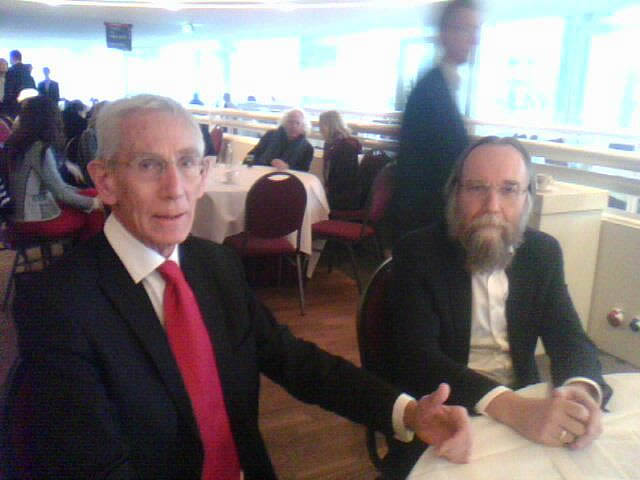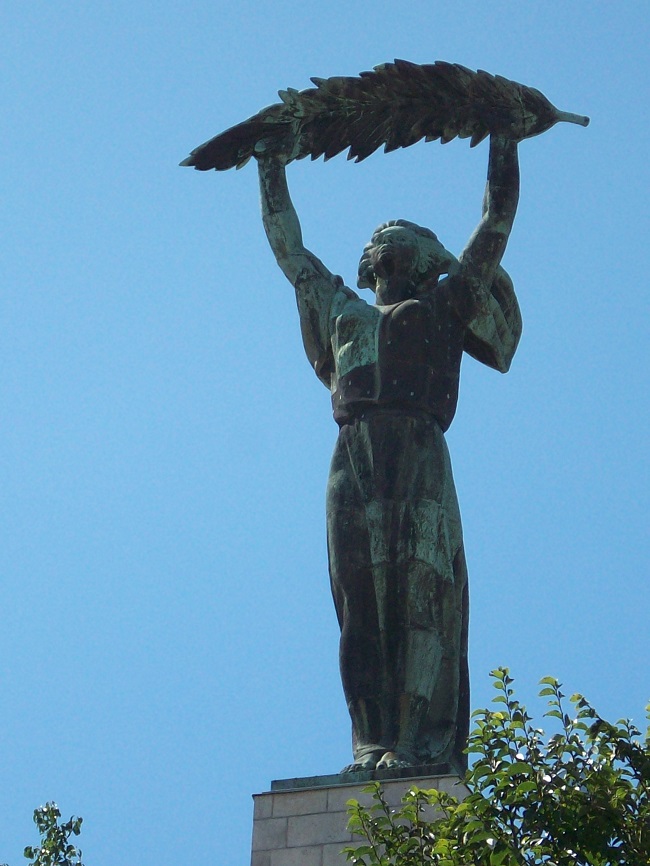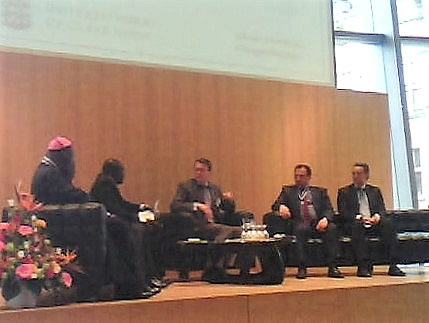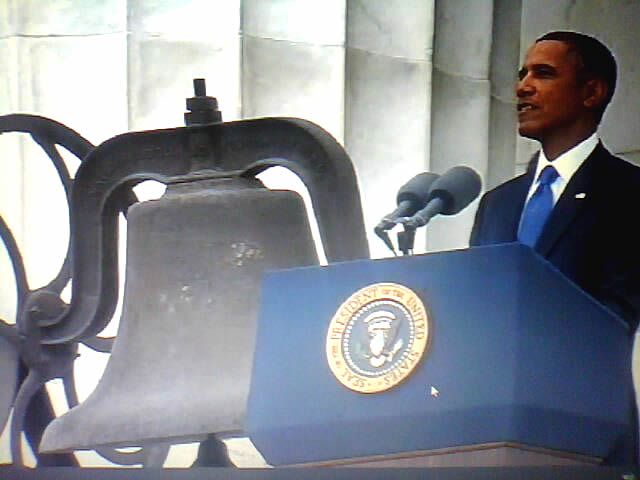
- FREEDOM, THE ABILITY TO ACT WITHOUT RESTRAINT
- PEACE IS BEHAVIOUR: "THE FOUR FREEDOMS"
- FREEDOM IN PHILOSOPHY, POLITICS AND OTHER VIEWS
- FREEDOM OF EXPRESSION IN THE AGE OF INEQUALITY (Zeki Ergas)
|
The free world and its enemies: What Putin’s war and China’s global ambitions mean for us
"we — Ukraine’s allies — do not see ourselves as parties to this conflict; but Putin does. We have been exquisitely careful in drawing our red lines for the Kremlin. We are helping Ukraine, and are constraining Russia with sanctions of unparalleled severity, yet we will not engage as combatants" (Constanze Stelzenmüller)
|
 |
|
|
| "LIBERTY IS NEGATIVE" (Dugin) |
Truly enjoyed the excellent discussions about freedom and power, but still struggle with the answer to the question what is needed to transform the masses into individuals of a united humanity, which cherishes freedom and human dignity. That would thus truly be 'the last revolution' and could support an ideology, which the whole world should embrace. Not merely one 4th political theory, one predominant religion or one languorous thirst to democratize and liberalize the whole world, but living with FDR's four essential human freedoms and mutual respect for each other's way of life.
Recently, I received publication NEXUS 77 (2018), in which your essay 'Against Liberalism: The Paradox of the Freedom' is included. Born after WW-II and as a child of The Enlightenment and Western society, I have some counter thoughts regarding approach and concepts laid down in the essay as well as with thoughts according to 'The 4th Political Theory', a political ideology which integrates and supersedes liberal democracy, Marxism, and fascism and which has been cited as an inspiration for Russian policy and for the contemporary European far-right in general. 'What is freedom for?' (Luther). |
 |
What is cannot come-to-be (since it already is), while nothing can come to be from what is not (Aristotle). History shows suppression, intimidation, warfare from whatever kind of ideology or religion turns once into a quest for freedom and democracy (eg. Arab uprise), which both can not exist without each other. Longstanding attitude to life of Western societies is an excellent example in this respect. Due to these values, opportunities for self-development increased exponentially and a lot of significant progress has been made, albeit that usually there must be limits because on individual and institutional level inner autonomy and discipline are not always balanced. This however, is duty of education to guide. On the other hand, the more easterly in Eurasia, these societies and individuals have in fact never felt themselves and have never been 'completely free' like in the West; freedom is not sufficient on the surface as a basis condition.
Early May is a period in which sovereign states commemorate the liberation of occupiers (see attachment General Eisenhower's outgoing message reporting Victory in Europe, this week 1945) and dwell on and celebrate the sometimes almost impossible task to work together: in the Netherlands (5th Liberation Day), and Victory Day in Europe (8th) and the Russian Federation (9th). Within such a context it is clear freedom can only truly be felt and lived, when absence of an ability to act or change without restraint is expierenced. The philosophical freedom (consciously, in a well balanced matter and with self control in a given constructive direction) and the political freedom (the right or the capacity of self-determination as an expression of the individual will) were confiscated. Freedom however, is a basic need for the people. Self-determination, individual sovereignty, or autonomy is genesis and inextricably bound to man. However, freedom is never absolute, but voluntary and not to force mandatory. |
People will always crave for freedom. If today, as alleged, there is so-called democratic degradation, then this is only a temporary hollow rhetoric and only of interest to those who wish to benefit from it. Freedom and liberalism are powerful world values and driving forces for economies, which can florish for the broadest need of the people, admittedly not facilitated by every country. That, as you write, "the individual is limited in freedom by collective identity" is natural, but that does not yet mean that, as I read on page 87, "the moment has come to say goodbye to humanism". On the contrary, humanism is a philosophy of life, a cultural ideal in which knowledge and civilization are inextricably linked and that puts people first. Humanists believe in carefully and conscientiously dealing with others, the world and yourself, in doing good, justice and the use of reason. That's how it should be. As such, we need this attitude to life if we want to continue to live together civilized.
On page 77 it reads: 'Liberty is negative' (the indication negative freedom, but in quotes, was also used by Isaiha Berlin), because it concerns liberation from all restrictions to which the individual is subjected from the outside". I can not discover the negative. For example, I think of the painting 'La Liberté guidant le peuple', representing a women personifying the concept and the Goddess of Liberty, as well as to the liberty statues in New York and Budapest, symbols of freedom and as a sign of welcome, respectively in commemoration of those who sacrificed their lives for the independence, freedom, and prosperity of Hungary. |
Can there or does liberalism and freedom exist in a sovereign state with autocratic style of governing? What do these centristic ruled countries deliver to the people? Russia is a proponent of the free market economy, but what with relationship between style of governing, economic liberalism and nominally free market economy (in fact, however, just as in the US, a mixed economy by presence of central authority)? And what if the 4th political theory shapes the future? Which way will the world go?
I question the text "and what do the liberals usually do with their enemies? Exactly: they kill them because they threaten the peaceful, prosperous liberal community" (page 89). The great majority feels happy with the liberal or liberal conservative ideology. And if not, then there is freedom not to be liberal. And if there is actual injustice, there is the possibility to make use of the rule of law. |
|
| FREEDOM, the ability to act without restraint, may refer to: |
In the context of internal control, freedom is also known as self-determination, individual sovereignty, or autonomy. The protection of interpersonal freedom can be the object of a social and political investigation, while the metaphysical foundation of inner freedom is a philosophical and psychological question. Both forms of freedom come together in each individual as the internal and external values mesh together in a dynamic compromise and power struggle; the society fighting for power in defining the values of individuals and the individual fighting for societal acceptance and respect in establishing one's own values in it. Spiritually, freedom encompasses the peaceful acceptance of reality. The theological question of freedom generally focuses on reconciling the experience or reality of inner freedom with the omnipotence of the divine. Presence of freedom in all it's forms remains an issue. In this context, famous is FDR's Annual Message to the Congress January 6, 1941, an address to the Members of the Seventy-seventh Congress at a moment unprecedented in the history of the Union, due to the threatening of Amercan security. FDR speeched to focus the future days and to seek to make it secure,and to look forward to a world founded upon four essential human freedoms:
|
| "PEACE IS BEHAVIOUR" |
The Four Freedoms, one of many human rights, were goals articulated by United States President Franklin D. Roosevelt on January 6, 1941. In an address known as the Four Freedoms speech (technically the 1941 State of the Union address). Roosevelt delivered his speech 11 months before the United States declared war on Japan, December 8, 1941. The State of the Union speech before Congress was largely about the national security of the United States and the threat to other democracies from world war that was being waged across the continents in the eastern hemisphere. In the speech, he made a break with the tradition of United States non-interventionism that had long been held in the United States. He outlined the U.S. role in helping allies already engaged in warfare. |
|
 |
With the event ‘Roosevelt in The Hague‘ the Roosevelt Foundation and The Hague Institute for Global Justice together aim to engage, develop and test policy and educational frameworks that will enable key stakeholders to address the Four Freedoms effectively in our time. The event will inter alia involve the various fields of work of former, present and future Four Freedoms Awards Laureates.
Values, achievements and government models, such as stability, poverty threshold, democracy that should provide sufficient, peace, human rights,
are taken for granted.
But constantly shows that efforts and fights should be made to keep and to increase these levels. Education and sustainable connection with the youth, are ways to create a better world.
|

|
| FREEDOM IN PHILOSOPHY, POLITICS AND OTHER VIEWS |
|
FREEDOM OF EXPRESSION in the age of inequality |
| An absence of restraint
It means unwilling to subjugate, lacking submission, or without forceful inequality. The achievement of this form of freedom depends upon a combination of the resist of the individual (or group) and one's (their) environment; if one is in jail or even limited by a lack of resources, this person is free within their power and environment, but not free to defy reality. Natural laws restrict this form of freedom; for instance, no one is free to fly (though we may or may not be free to attempt to do so). Isaiah Berlin appears to call this kind of freedom "negative freedom" - an absence of obstacles put in the way of my action (especially by other people). He distinguishes this from "positive freedom", which refers to my power to make choices leading to action. Freedom has often been used a rallying cry for revolution or rebellion. For instance, the Bible records the story of Moses leading his people out of slavery, and into freedom. In his famous "I Have a Dream" speech Martin Luther King, Jr. quoted an old spiritual song sung by black American slaves: "Free at last! Free at last! Thank God Almighty we are free at last!" Inner autonomy Freedom can also signify inner autonomy, or mastery over one's inner condition. This has several possible significances:
In a play by Hans Sachs, the Greek philosopher Diogenes speaks to Alexander the Great, saying: You are my servants' servant. The philosopher has conquered fear, lust, and anger; Alexander still serves these masters. Though he has conquered the world without, he has not yet mastered the world within. This kind of mastery is dependent upon no one and nothing other than ourselves. Richard Lovelace's poem echoes this experience: Historical origins The ama-gi, a Sumerian cuneiform word, is the earliest known written symbol representing the idea of freedom.Our English word "freedom" comes from an Indo-European root that means "to love." Cognates of the English word "freedom" include the Old High German word for "peace" and our English word "afraid" from a Vulgar Latin word for breaking. Political freedom is the right, or the capacity and ability, of self-determination as an expression of the individual will.
Types of freedom The concept of political freedom is closely allied with the concepts of civil liberties and human rights. Most democratic societies are characterized by various freedoms which are afforded the legal protection of the state. Some of these freedoms may include (in alphabetical order):
Various groups along the political spectrum naturally differ on what they believe constitutes "true" political freedom. Friedrich Hayek famously noted that "liberty" and "freedom" have probably been the most abused words in recent history. In libertarianism, freedom is defined in terms of interference with the individual pursuit of happiness either by government or other persons, where interference is defined as unreasonably preventing others from realising their will in their chosen course of action or in their use of things. Contrary to popular belief, libertarians are not pro-business. Rather, they simply oppose interference in any consenting acts between adults, including capitalist acts. Generally businesses favour regulations that protect them from competition, which requires many restrictions on consenting capitalist acts between adults. Libertarians call for freedom from coercion, governmental and civilian, in social, political, and economic matters. On the other hand, those on the political left place more emphasis on freedom as the ability of the individual to realize one's own potential and pursuit of happiness. Freedom in this sense may include freedom from want, poverty, deprivation, or oppression. Many anarchists with the exception of individualist anarchists, anarcho-capitalists, and particularly anarchists that don't qualify their type of anarchism see negative and positive liberty as complementary concepts of freedom. Anarchists that recognize the concepts of negative and positive liberty tend to be left-leaning anarchists such as communist anarchists. Some treat freedom as if it were almost synonymous with democracy, while others see conflicts or even opposition between the two concepts. For example, some people argue that Iraq was free under Paul Bremer because it was a rational, humanist, non-subjugating government, long before elections were held. However, others have argued that Iraq was free under Saddam Hussein because Iraq was not a colony {[fact}}. Environmentalists often argue that political freedoms should include some social constraint on use of ecosystems. They maintain there is no such thing, for instance, as "freedom to pollute" or "freedom to deforest" given the downstream consequences. The popularity of SUVs, golf, and urban sprawl has been used as evidence that some ideas of freedom and ecological conservation can clash. This leads at times to serious confrontations and clashes of values reflected in advertising campaigns, e.g. that of PETA regarding fur. There have been numerous philosophical debates over the nature of freedom, the claimed differences between various types of freedom, and the extent to which freedom is desirable. Determinists argue that all human actions are pre-determined and thus freedom is an illusion. Isaiah Berlin saw a distinction between negative liberty and positive liberty. In jurisprudence, freedom is the right to autonomously determine one's own actions; generally it is granted in those fields in which the subject has no obligations to fulfill or laws to obey, according to the interpretation that the hypothetical natural unlimited freedom is limited by the law for some matters. Recent trends In modern times the expansion of "freedom" around the world is considered by some to be synonymous with increased participation in democratic political systems. In the 20th Century, the world observed a great reverse in terms of political situation, since the revolutionary struggles in areas of the world suddenly succeeded in establishing freedom from foreign colonialists and domination, at least in places like Africa, even though others may argue that the Cold War caused most of these new states to become puppet states for various regimes such as in Latin America, Africa, and Asia. |
|
 |